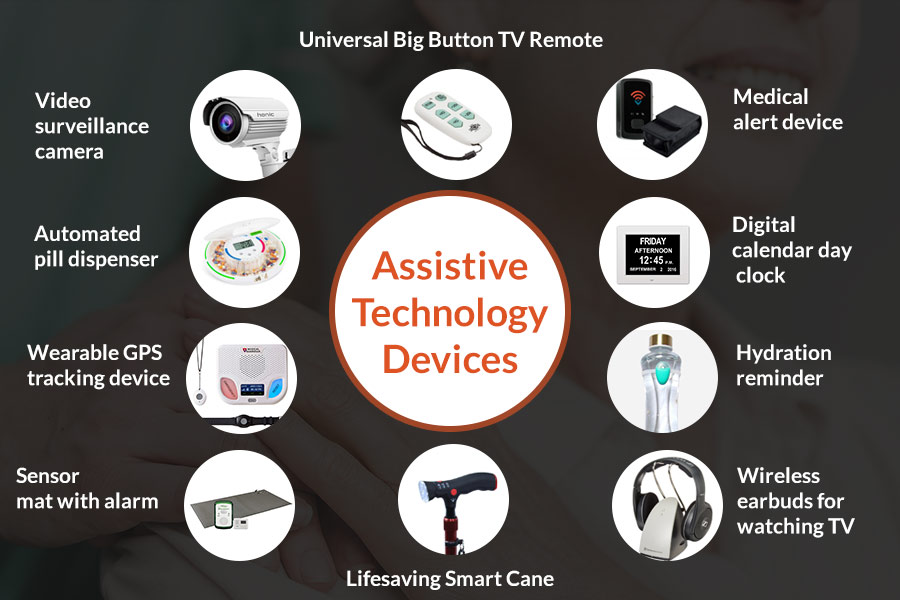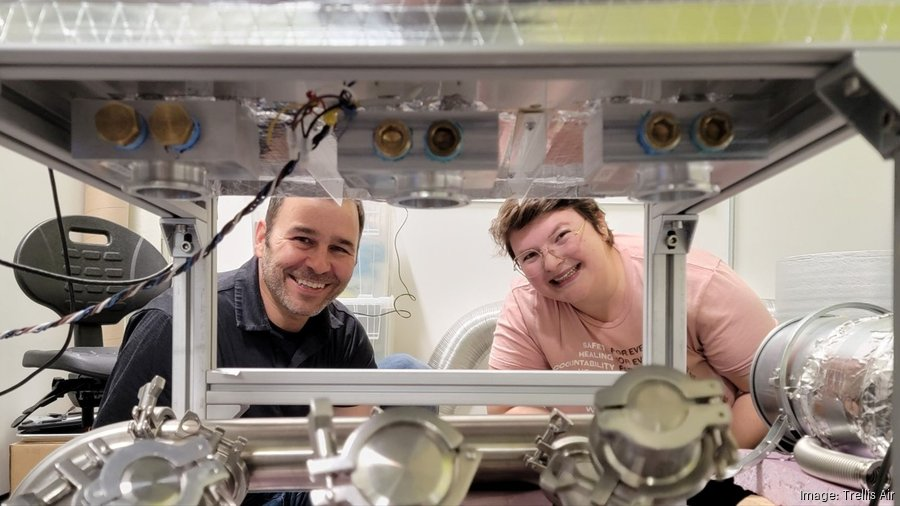Adaptive health apps are revolutionizing the way patients manage their health by providing personalized support tailored to individual needs. These innovative mobile applications integrate advanced technologies, such as reinforcement learning and artificial intelligence, to create customized experiences for users, enhancing personalized health technology. Designed to meet the unique challenges faced by individuals, including those undergoing stem cell transplants or seeking cancer patient support, these applications deliver real-time guidance and motivation. Instead of relying on a one-size-fits-all approach, adaptive health apps respond dynamically to user behavior, ensuring that encouragement and reminders are timely and relevant. By combining behavioral science with healthcare mobile applications, these tools are setting a new standard for effective health management and patient engagement.
Within the realm of health technology, adaptive health apps—or personalized healthcare solutions—offer a fresh perspective on patient support. These applications utilize sophisticated algorithms to adjust their assistance based on users’ evolving conditions and requirements. For individuals battling cancer or recovering from significant medical procedures, such as stem cell transplants, having this kind of targeted support can be crucial. As healthcare continues to evolve, these smart applications serve as digital companions, helping to manage everything from treatment regimens to well-being activities. By leveraging reinforcement learning techniques, these platforms strive to create an interactive experience that promotes better health outcomes for users.
The Role of Adaptive Health Apps in Personalization
Adaptive health apps represent a significant evolution in personalized health technology, aiming to provide users with tailored health support and management solutions. Unlike traditional health applications that often deliver a one-size-fits-all approach, these innovative tools utilize machine learning and advanced algorithms to adapt to each user’s unique circumstances in real-time. This adaptability is particularly beneficial for patients with chronic conditions, such as those undergoing cancer treatments or stem cell transplants, where their health needs can fluctuate dramatically. By continuously analyzing user behavior and health data, adaptive health apps can send timely reminders and motivating messages that resonate more with the individual experience of the user, enhancing adherence to treatment protocols.
Through mechanisms like just-in-time adaptive intervention, users can receive personalized prompts based on their specific health status or emotional needs at any given moment. For instance, if a cancer patient is particularly fatigued, the app might adjust its notifications to encourage more rest or convey supportive messages that promote emotional wellness rather than simply focusing on medication adherence. This concept of tailored support is a game-changer in healthcare mobile applications, helping users feel understood and supported on their health journeys.
Innovations in Cancer Patient Support Apps
Cancer patient support apps have revolutionized how individuals navigate their treatment journey. These applications offer features that go beyond mere medication reminders. Instead, they integrate behavioral health support and social networks to help patients manage the complex emotional landscape associated with cancer care. By leveraging algorithms that adapt to patient progress and feedback, these apps can create a more engaging and supportive environment. Furthermore, many of these applications are rooted in the latest research on personalized health technology, ensuring they provide scientifically backed support tailored to the specific challenges faced by cancer patients.
Additionally, the applications designed for cancer patients often include interactive elements, such as games or community-building features, that foster social support. For example, the ADAPTS HCT app is created to enhance communication between patients and their caregivers, allowing for a shared experience in management of the patient’s health. This not only helps in medication adherence but also in reducing feelings of isolation, a significant concern for many patients undergoing solo treatments. Such innovations exemplify how technology can bridge gaps in traditional patient care, offering holistic solutions that address both physical and emotional health needs.
Integrating Reinforcement Learning to Enhance Health Outcomes
Reinforcement learning is an emerging domain within healthcare technology, enhancing the efficacy of apps designed for chronic condition management. By simulating outcomes from previous interactions, these smart algorithms become capable of making informed suggestions that can significantly improve health outcomes for users. For patients receiving stem cell transplants, this means receiving reminders and encouragement tailored to their recovery times and psychological states, rather than generic messages. The level of personalization offered can effectively motivate patients to adhere more closely to their treatment regimens, which is crucial given the complex nature of their care.
Moreover, the application of reinforcement learning can adjust notifications based on user engagement. For instance, if a user frequently ignores medication reminders sent in the afternoon, the app may learn to send them at a different time when the individual is more likely to be receptive. This heightened adaptability not only mitigates the risk of patient disengagement but also nurtures a more trusting relationship between patients and their digital health care tools. As research continues to uncover new ways to apply reinforcement learning in health apps, its potential to transform patient support systems becomes more apparent.
The Future of Healthcare Mobile Applications
The future of healthcare mobile applications lies in their capacity to evolve alongside advancements in technology and research. As new insights into patient behaviors and preferences emerge, apps will be better equipped to provide dynamic support tailored to individual user needs. This evolution will likely include features that anticipate health-related challenges and offer preemptive guidance. For example, applications might utilize not just historical data from individual users but also aggregate insights from the broader patient community to shape their advice and interventions.
Furthermore, the integration of wearable technology promises to push the capabilities of healthcare mobile applications even further. By connecting directly to devices that monitor vital statistics and physical activities in real-time, these applications can offer comprehensive support that encompasses both physical and mental health dimensions. With ongoing development in personalized health technology, the line between a traditional healthcare provider and a digital health companion will continue to blur, creating a seamless experience for users striving to maintain their health and wellness.
Collaborative Innovations in Patient Care
Innovative collaborations among software engineers, healthcare professionals, and researchers are central to the development of cutting-edge health applications. As exemplified by the partnership between Harvard’s Murphy lab and institutions like the University of Michigan, such collaborations facilitate the creation of applications that are deeply informed by clinical expertise and real-world patient experiences. This multi-disciplinary approach ensures that new health apps are not only technologically advanced but also clinically relevant, addressing the actual needs of patients, particularly those with complex health issues.
Collectively, these partnerships can fuel the rapid advancement and testing of applications, evolving them from mere concepts into clinically validated tools. They can also provide critical feedback loops that inform future iterations, ensuring that user experience and clinical efficacy continue to improve in tandem. As the landscape of healthcare technology evolves, collaborations between academic institutions and industry stakeholders are likely to become the cornerstone of innovative patient care solutions.
The Importance of Caregiver Support in Health Management
Caregivers play a crucial role in the health management of patients, particularly those undergoing treatment for serious conditions like cancer or during recovery from procedures such as stem cell transplants. By actively involving family members and other caregivers in tools like adaptive health apps, these applications can facilitate a more cohesive care environment for patients. The integration of caregiver support features into mobile health applications not only eases the burden on patients but also fosters a sense of partnership in health management.
Many patients rely on caregivers for medication management and emotional support, which underscores the necessity for applications to address the needs of both parties. By sending shared reminders, motivational messages, and health updates to caregivers, adaptive health apps can help create a network of support that empowers patients and assists caregivers in providing the best possible care. This emphasis on the caregiver-patient dynamic speaks to the broader understanding that health management is a team effort—one that can significantly improve outcomes and patient satisfaction.
Behavioral Health Integration in Mobile Apps
As healthcare shifts towards a more holistic approach, the integration of behavioral health into mobile applications becomes paramount. Tools designed for patients, particularly those facing chronic illnesses or significant lifestyle changes, must address not only physical health-related tasks but also cognitive and emotional concerns. Addressing behavioral health can enhance a patient’s engagement with their treatment and foster healthier habits, leading to better overall health outcomes.
By leveraging sophisticated algorithms, mobile health apps can tailor interventions that take patients’ mental well-being into account. Whether it’s providing motivational support during challenging moments or offering coping strategies for side effects related to treatments, the flexibility of adaptive health apps allows them to respond dynamically to a user’s emotional state. Integrating behavioral health support into healthcare mobile applications reflects an understanding that mental and physical health are deeply interconnected, ensuring users receive comprehensive care.
Overcoming Challenges in Algorithm Development for Health Apps
Developing effective algorithms for healthcare mobile applications presents a host of challenges that must be navigated carefully. These obstacles can range from practical issues such as software malfunctions to more complex concerns involving user engagement and data privacy. Stakeholders must ensure that algorithms are not only effective in delivering tailored support but are also transparent and secure, promoting trust among users who might be hesitant to share sensitive health information.
Moreover, gathering high-quality data to inform algorithmic decision-making is crucial. As highlighted by the experiences of the Murphy lab in their oral health intervention project, real-world feedback and efficient data collection systems are essential for training algorithms to adapt effectively to user needs. Addressing these challenges is critical for future developments in health applications, as robust, reliable algorithms will ultimately unlock the potential for even more personalized healthcare solutions.
The Emergence of Digital Health Coaches
The concept of digital health coaches is gaining traction as more individuals seek accessible and affordable health management solutions. These virtual assistants empower users to take charge of their health by providing personalized guidance based on individual circumstances and preferences. With applications that leverage reinforcement learning and behavioral psychology, digital health coaches can adapt their recommendations in real-time to enhance user compliance and motivation.
The idea is not just to replicate the experience of having a personal trainer or health coach but to democratize the support that individuals can access. Many people might not only find personalized coaching prohibitively expensive but may also feel uncomfortable with intensive human interaction. Digital health coaches bridge this gap, allowing users to receive high-quality, adaptive support through the screens of their smartphones or other devices, all while respecting their personal boundaries and lifestyles.
Frequently Asked Questions
What are adaptive health apps and how do they benefit patients?
Adaptive health apps are innovative healthcare mobile applications that utilize algorithms, including reinforcement learning in health, to provide personalized health technology for patients. These apps continuously customize support based on user interactions, helping users adhere to medication protocols, manage chronic health conditions like cancer, or enhance overall well-being. By analyzing real-time data, adaptive health apps offer timely interventions and motivation, improving patient outcomes.
How do reinforcement learning algorithms enhance adaptive health apps?
Reinforcement learning algorithms are critical in developing adaptive health apps by allowing them to learn from user behavior over time. These algorithms adjust the app’s responses, providing personalized feedback and support. For instance, in cancer patient support apps, the algorithm can determine the optimal timing for medication reminders, ultimately increasing adherence and improving health management.
What role do adaptive health apps play in supporting stem cell transplant patients?
Adaptive health apps specifically designed for stem cell transplant patients provide crucial support during their recovery period. By leveraging just-in-time adaptive interventions, these apps can deliver personalized reminders and motivational prompts tailored to the patient’s needs. This ensures that patients and their caregivers receive timely support in managing medications and tracking health progress, significantly improving health outcomes.
Can adaptive health apps help with cannabis use management?
Yes, adaptive health apps can significantly assist individuals in managing cannabis use. By utilizing reinforcement learning, apps like MiWaves continuously learn from user interactions to offer personalized support. This customization allows users to receive targeted feedback and motivation tailored to their specific consumption habits, aiding them in reducing reliance on cannabis effectively.
What are the key features of cancer patient support apps using adaptive health technology?
Cancer patient support apps employing adaptive health technology feature personalized interventions based on reinforcement learning algorithms. These may include medication reminders, motivational messages, and social support components to enhance the caregiver-patient relationship. By adapting to the patient’s progress and needs, these apps provide comprehensive support aimed at improving adherence to treatment regimens and overall quality of life.
How do healthcare mobile applications ensure patient engagement?
Healthcare mobile applications ensure patient engagement through tailored experiences facilitated by reinforcement learning algorithms. By analyzing patient data and preferences, these adaptive health apps provide personalized content, timely reminders, and interactive components like games or challenges that motivate users to participate actively in their health management, ultimately enhancing treatment adherence and user satisfaction.
What is the significance of just-in-time adaptive intervention in health apps?
Just-in-time adaptive intervention is a significant concept in health apps as it allows for real-time personalization based on the user’s changing circumstances. This approach leverages advanced algorithms to deliver support precisely when needed, whether through reminders, motivational messages, or timely information, thus enhancing patient adherence and engagement with care plans.
How can family caregivers benefit from adaptive health apps for their patients?
Family caregivers can greatly benefit from adaptive health apps as these tools facilitate effective communication and support systems. By providing reminders for medication management and health updates, these apps allow caregivers to be hands-on in the patient’s care. Additionally, features that encourage interaction between patients and caregivers foster collaboration, ultimately improving health outcomes and easing the caregiving process.
| Aspect | Details |
|---|---|
| Target Audience | Cancer patients, particularly those undergoing stem cell transplants. |
| Technology Used | Reinforcement learning algorithms to customize patient support. |
| Key Features | Real-time personalized motivational prompts and reminders. |
| Collaboration | Partnerships with software engineers, oncology clinicians, and universities. |
| Research Focus | Creating adaptive apps for medication management and health adherence. |
| Trial Name | ADAPTS HCT, focusing on young patients after stem cell transplants. |
| Functionality | An app that learns from user interactions to enhance compliance. |
| Broader Applications | Programs like MiWaves for cannabis reduction and Oralytics for dental care. |
Summary
Adaptive health apps are revolutionizing patient care by providing tailored support systems that cater to individual needs. The innovative use of artificial intelligence and reinforcement learning in these applications is helping users, particularly those battling serious health issues such as cancer, to adhere better to their treatment plans. By continuously learning and evolving based on user feedback and interactions, adaptive health apps offer a level of personalization that traditional solutions cannot match. This not only enhances medication compliance but also fosters improved relationships between patients and their caregivers, ultimately leading to better health outcomes.



